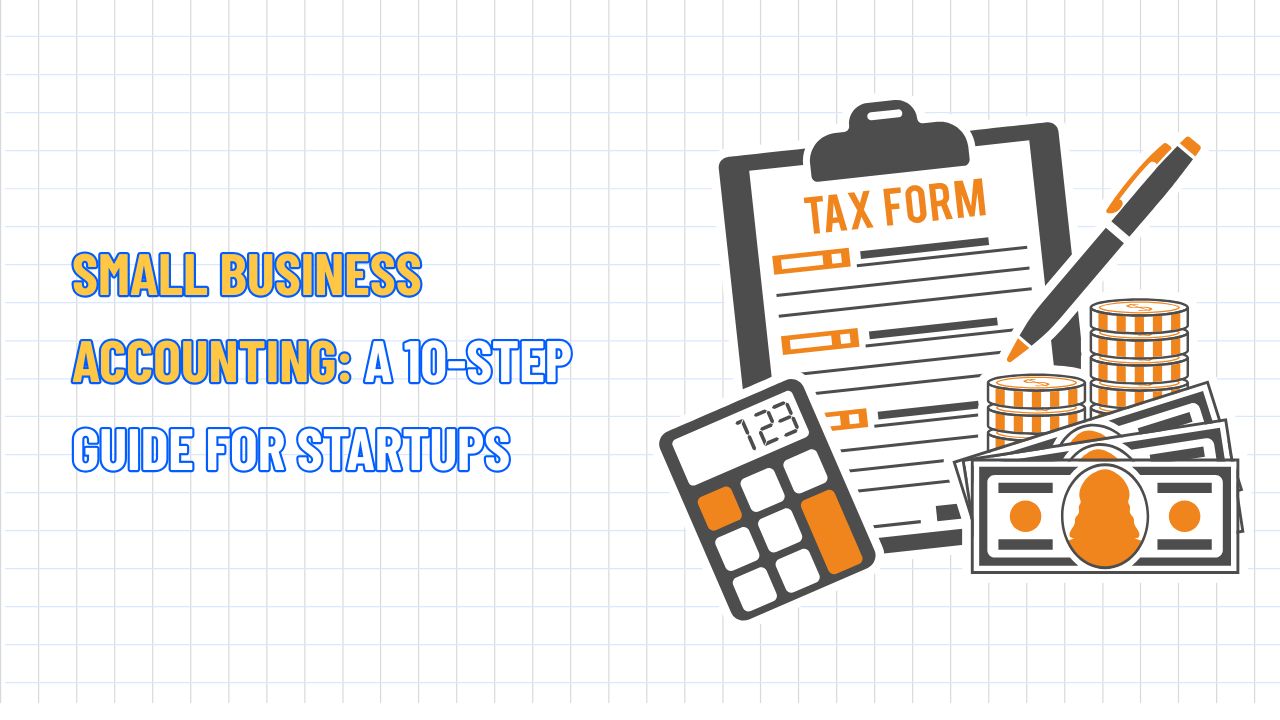How to Scale a Small Business Sustainability with 10 Steps
Table of Contents Hide
Scaling a business is a transformative journey that can elevate your operations, revenue, and market presence. In the article below, join NextSky as we explore how to scale a small business along with feasible strategies for effective growth.
What does scaling a small business mean?
Scaling a small business means increasing revenue or expanding operations efficiently, maximizing output without significantly raising costs. Unlike traditional growth, scaling optimizes processes, leverages technology, and enhances customer experience. The key difference between growth and scaling lies in efficiency:
- Growth: Increasing revenue or operational size, often accompanied by proportional cost increases, such as hiring more staff to handle additional orders.
- Scaling: Increasing revenue or capacity without a substantial cost increase, like automating processes to handle more orders without adding personnel.
Read more: What is A Small Business? A Comprehensive Guide to Definition
How to scale a small business with 10 steps
Based on NextSky's experience supporting over 5,000 businesses in optimizing e-commerce operations, here are 10 practical strategies to scale a small business effectively.
1. Build scalable infrastructure with technology
For e-commerce businesses, a robust platform like Shopify, combined with speed- and SEO-optimized themes like NextSky's Umino or Agile, enables your website to handle high traffic volumes, boost conversions, and avoid heavy resource demands. Practical steps to leverage technology:
- Automate processes: Use tools like Zapier or Shopify apps to manage inventory and orders, minimizing manual work and saving time.
- Choose scalable software: Opt for tools that grow with your business, such as cloud-based CRM like HubSpot or accounting software like QuickBooks, to track customers and finances efficiently.
- Leverage APIs: Integrate APIs for seamless data flow between your website, payment gateways, and marketing tools, just as NextSky helps clients achieve comprehensive integrations.
Real-world example: A Shopify store using NextSky's Glozin theme reduced page load times by 40% and increased conversion rates by 15% without additional marketing spend, demonstrating the power of smart tech investments.
2. Build a data-driven growth plan
A detailed growth plan guides businesses in scaling efficiently, ensuring all efforts align with business goals. Key elements to focus on include:
- Revenue forecasting: Estimate future revenue based on historical data and market trends to set achievable targets.
- Scaling budget: Allocate funds for technology, hiring, and marketing, while reserving contingencies for unexpected expenses to mitigate risks.
- Key performance indicators (KPIs): Track customer acquisition cost (CAC), customer lifetime value (CLV), and conversion rates to measure strategy effectiveness and progress.

Tip: Regularly review and adjust your plan based on market fluctuations or operational challenges to ensure smooth, sustainable scaling.
Read more: What is A Small Business? A Comprehensive Guide to Definition
3. Optimize your sales funnel
An effective sales funnel converts leads into loyal customers. For e-commerce businesses, you can optimize your funnel by:
- Enhancing user experience on the website: Use NextSky's Shopify themes to create intuitive, mobile-friendly shopping experiences with easy navigation.
- Personalizing marketing: Implement targeted email campaigns or retargeting ads to guide customers through the funnel and boost conversions.
- Simplifying checkout: Reduce cart abandonment with one-click payments or guest checkout options.
Encourage purchases with compelling incentives like time-limited discounts or free shipping to increase conversions and retain customers.
4. Prioritize customer retention
An effective sales funnel helps convert leads into loyal customers. For e-commerce businesses, you can optimize your funnel by:
- Enhancing user experience on the website: Use NextSky's Shopify themes to create intuitive, mobile-friendly shopping experiences with easy navigation.
- Personalizing marketing: Implement targeted email campaigns or retargeting ads to guide customers through the funnel and boost conversions.
- Simplifying checkout: Reduce cart abandonment with one-click payments or guest checkout options.

Encourage purchases with compelling incentives like time-limited discounts or free shipping to increase conversions and retain customers.
Read more: Top 10+ Best Small Business Wholesale Suppliers Success
5. Expand your team strategically
An effective sales funnel helps convert leads into loyal customers. For e-commerce businesses, you can optimize your funnel by:
- Enhancing user experience on the website: Use NextSky's Shopify themes to create intuitive, mobile-friendly shopping experiences with easy navigation.
- Personalizing marketing: Implement targeted email campaigns or retargeting ads to guide customers through the funnel and boost conversions.
- Simplifying checkout: Reduce cart abandonment with one-click payments or guest checkout options.
Encourage purchases with compelling incentives like time-limited discounts or free shipping to increase conversions and retain customers.
6. Diversify revenue streams
Avoid relying on a single product or market. To unlock growth potential, businesses should diversify their portfolio and explore new opportunities:
- Complementary products or services: Research the market to identify offerings that align with customer needs.
- Subscription or product bundles: Boost average order value and create steady revenue.
- New markets: Go global with Shopify's multi-currency features or export to other regions.

Example: A NextSky client added a subscription box service, increasing monthly revenue by 30% without significant additional resources.
7. Strengthen financial management
Sound financial practices are essential for not just scaling but maintaining long-term stability. Here are key elements to help you grow sustainably while keeping daily operations efficient.
- Hire a professional accountant (CPA): A CPA provides accuracy, full tax compliance, and strategic financial advice, enabling informed decisions and avoiding legal risks.
- Monitor cash flow continuously: Use tools like Xero to track expenses and revenue in real-time, identifying financial bottlenecks and forecasting capital needs accurately.
- Secure funding for growth: Explore loans, angel investors, or bootstrapping, but always maintain a separate reserve for expansion goals, distinct from daily operating costs, to scale flexibly without disrupting current activities.
8. Enhance customer experience
Seamless customer experiences are key to retention and encouraging word-of-mouth referrals. A positive experience boosts satisfaction, loyalty, and sales.
- Simplify support: Use chatbots or live chat features like Tidio to resolve customer queries quickly, reducing wait times and enhancing experiences.
- Gather feedback: Implement surveys or review systems to understand customer needs, desires, and pain points, then improve products and services accordingly.
- Optimize post-purchase: Send personalized thank-you emails or upsell offers to make customers feel valued and increase repeat purchase chances.

9. Form strategic partnerships
Strategic partnerships are among the most effective ways to expand reach, boost revenue, and build brand credibility. When executed well, they access new customers and deliver long-term benefits as outlined below.
- Collaborate with complementary brands: Co-market with businesses serving the same audience.
- Work with suppliers: Negotiate better terms or bulk discounts to support rising demand.
- Join industry networks: Attend trade shows or networking events to build relationships.
10. Measure and refine continuously
Scaling is an ongoing process, and effectiveness comes from data-driven decisions. Analyzing data optimizes every step, from marketing strategies to operations and customer care.
- Track performance comprehensively: Monitor key metrics like website traffic, conversion rates, retention rates, and revenue in real-time to assess operations.
- Run continuous A/B testing: Experiment with marketing campaigns, website designs, or user experiences to identify top performers and refine funnel elements.
- Adjust and adapt flexibly: Use data insights to tweak strategies, operations, and resource priorities for steady growth.
Use Google Analytics, Shopify Analytics, or advanced tools to monitor performance, spot strengths and weaknesses, and maximize growth opportunities.
Read more: Top 5 Best Shipping Options for Small Businesses to Save Big
Signs your business is ready to scale
Before scaling, ensure your business is prepared. Here are three key signs:
- Stable demand and revenue growth: Consistent revenue increases over 6–12 months signal market demand. For example, if your Shopify store sees 20% monthly order growth, it's time to consider scaling.
- Operational strain: If your team struggles with order volume or customer requests, it's a sign to optimize processes or invest in tools like CRM systems or automation software.
- Financial stability: Strong cash flow and a clear financial picture—like accurate budgeting and forecasting—are essential to fund scaling without eroding profits.
Tips for sustainable small business growth
Scaling requires a clear strategy, long-term planning, and deep customer understanding. For sustainable growth, focus on these principles:
- Plan long-term: Prioritize steady growth over short-term wins. Build systems, processes, and infrastructure ready for expansion, from operations to team management.
- Understand customers: Use data to predict needs, analyze behaviors, and deliver superior experiences. Deep customer insight informs decisions, boosting retention and conversions.
- Manage time effectively: Use tools like Trello or Asana to organize tasks, prioritize essentials, and keep expansion projects on track.
- Leverage big data: Analyze market trends, competitors, and customer behavior data for smart strategic decisions, reducing risks and optimizing outcomes.
- Foster a growth-oriented culture: Encourage innovation, flexibility, and adaptability in your team. A culture focused on learning and continuous improvement supports effective, sustainable scaling.
Common mistakes to avoid when scaling
Scaling offers growth opportunities, but carelessness can create risks. To ensure sustainable development, identify and sidestep these pitfalls:
- Scaling too fast: Rapid expansion without solid operational systems can lead to cash flow issues, reduced product or service quality, and team burnout.
- Neglecting current customer experience: Focusing solely on new acquisitions can alienate existing customers, harming loyalty and long-term revenue.
- Weak financial planning: Underestimating scaling costs or relying on inaccurate forecasts can strain resources and limit investments in new opportunities.
- Hiring the wrong people: Bringing on team members lacking skills or cultural fit can lower operational efficiency and stress the group. Prioritize those with relevant expertise and company alignment.
- Ignoring technology and automation: Manual processes can't meet growth demands. Investing in tech and automation maintains efficiency, reduces errors, and boosts productivity during expansion.
How to scale a small business requires strategic planning, efficient processes, and a customer-centric approach. With NextSky's insights above, you can track progress, make necessary adjustments, and build a scalable enterprise.











